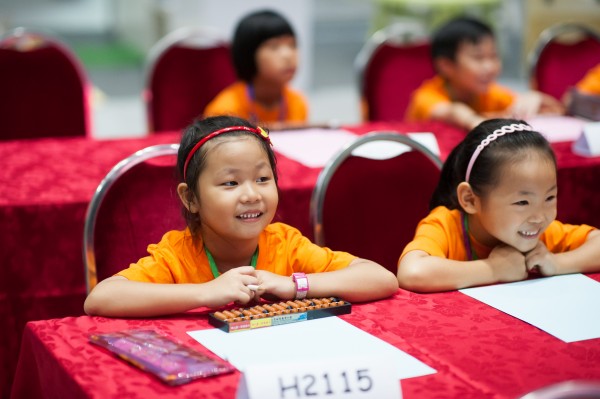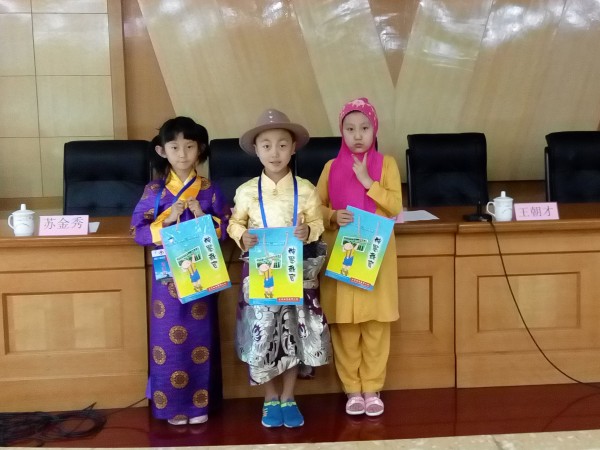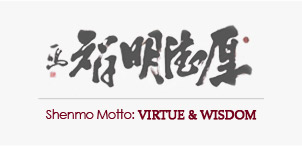SHENMO MOTTO: Virtue & Wisdom
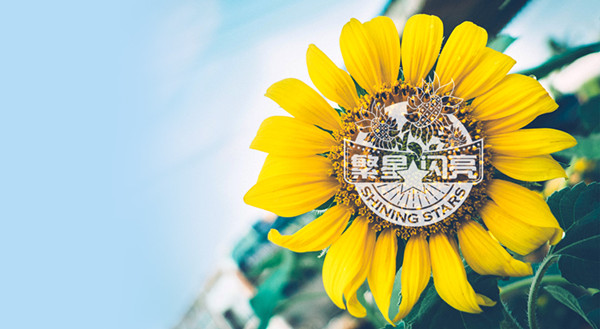
-
Knowledge or Creativity --Learning Theory in the Information Age
2019-01-08 丨
The writer is from the Ministry of culture development

In the age of the technology-developed internet, people are almost living in the ocean of information--we rely on handheld electronic devices more and more, and we enjoy and immerse ourselves in the state of knowing things by moving our fingers on screens or keyboards. We even have a sense of insecurity: if one day we forget to bring a mobile phone or the net is cut off, we may seem inanimate.
In addition to news, the information age makes knowledge and ideas seem to be at your fingertips–from excellent teacher lectures to classes of the world's top universities, the video information is widely uploaded on the internet; classic quotations such as Shenmo concepts and “Ma Yun Said” can be seen everywhere in moments and microblog. As the legend goes, the dragon will plunder golden treasures from all over the world, and then lie on it to sleep. Unconsciously, our collections and large hard drives have saved more and more "valuable things", and our curiosity, thirst for knowledge, and ambition to pursue progress are thus "satisfied" by a mechanical "information hoarding."
Some people may ask: will the school disappear one day? As all the theory stated in classes, even the teaching scene can be found online: are the abilities of modern people more and more strong? After all, the powerful information retrieval function is supported by an endless knowledge base.
A best-selling book in Europe and America named Make It Stick: The Science of Successful Learning tells us a story about a pilot, who managed to handle an accident with wisdom properly in a critical moment and avoided the air crash.
How can a pilot unexpectedly avoid a flight accident in an emergency? Obviously this can't be solved by temporarily checking the manual or searching for Baidu, but to rely on the high ability and sophisticated technology of the pilot. That has little to do with how much books of How to be a qualified pilot was collected in his home and how much information was saved in his phone about “remember these ten words, you are a good pilot”; before he walked into the aircraft cockpit, he had memorized rich flight knowledge, massive weather, climate, and aerodynamic information, as well as a lot of basic skills in daily life, and accumulated countless experiences in actual flight-all these “real” knowledge and experience enabled him to act effectively in confronting a crisis. Make It Stick tells us a simple truth: learning is not the hoarding of information, but a result of memory, thinking and training, which can truly provide the basis of and support for effective thinking, sound decision-making and innovative action in work and life.
After all: the propose like "You need not memorize but innovate" is obviously unscientific, because one can innovate only after having the memory, thinking and training of knowledge can innovation-no matter how much knowledge there is on the internet, it is not yours without research; no matter how practical the experience in the manual, it has nothing to do with you without training. The real repository of knowledge is the brain, rather than cell phones or laptops.
The book Make It Stick is based on the study of the laws of human cognition. It is concluded that creative behavior depends on the knowledge information possessed by people and the cognitive ability after repeated practice. In other words, to internalize the knowledge that is learned as part of one's own thoughts and behaviors, it requires the brain and hands to work at the same time for repeated learning and training. If there is no process of repeated memory and practice, one will still be trapped in the original thinking and thoughts, and there will be no information retrieval library. When encountering problems, it is difficult to take effective creative measures.
In running a school, whether in any position, it is a process of "study and practice", and in the above, it is about how to learn and how to practice.
In the era of rapid development and survival of the fittest, we need to maintain the state of memorizing and thinking knowledge at all times, practicing it repeatedly until we absorb it, and finally making it our experience and instinct, thus forming calm determination, keen insight and rapid action, and ultimately producing effective creativity at critical moments.
In addition to news, the information age makes knowledge and ideas seem to be at your fingertips–from excellent teacher lectures to classes of the world's top universities, the video information is widely uploaded on the internet; classic quotations such as Shenmo concepts and “Ma Yun Said” can be seen everywhere in moments and microblog. As the legend goes, the dragon will plunder golden treasures from all over the world, and then lie on it to sleep. Unconsciously, our collections and large hard drives have saved more and more "valuable things", and our curiosity, thirst for knowledge, and ambition to pursue progress are thus "satisfied" by a mechanical "information hoarding."
Some people may ask: will the school disappear one day? As all the theory stated in classes, even the teaching scene can be found online: are the abilities of modern people more and more strong? After all, the powerful information retrieval function is supported by an endless knowledge base.
A best-selling book in Europe and America named Make It Stick: The Science of Successful Learning tells us a story about a pilot, who managed to handle an accident with wisdom properly in a critical moment and avoided the air crash.
How can a pilot unexpectedly avoid a flight accident in an emergency? Obviously this can't be solved by temporarily checking the manual or searching for Baidu, but to rely on the high ability and sophisticated technology of the pilot. That has little to do with how much books of How to be a qualified pilot was collected in his home and how much information was saved in his phone about “remember these ten words, you are a good pilot”; before he walked into the aircraft cockpit, he had memorized rich flight knowledge, massive weather, climate, and aerodynamic information, as well as a lot of basic skills in daily life, and accumulated countless experiences in actual flight-all these “real” knowledge and experience enabled him to act effectively in confronting a crisis. Make It Stick tells us a simple truth: learning is not the hoarding of information, but a result of memory, thinking and training, which can truly provide the basis of and support for effective thinking, sound decision-making and innovative action in work and life.
After all: the propose like "You need not memorize but innovate" is obviously unscientific, because one can innovate only after having the memory, thinking and training of knowledge can innovation-no matter how much knowledge there is on the internet, it is not yours without research; no matter how practical the experience in the manual, it has nothing to do with you without training. The real repository of knowledge is the brain, rather than cell phones or laptops.
The book Make It Stick is based on the study of the laws of human cognition. It is concluded that creative behavior depends on the knowledge information possessed by people and the cognitive ability after repeated practice. In other words, to internalize the knowledge that is learned as part of one's own thoughts and behaviors, it requires the brain and hands to work at the same time for repeated learning and training. If there is no process of repeated memory and practice, one will still be trapped in the original thinking and thoughts, and there will be no information retrieval library. When encountering problems, it is difficult to take effective creative measures.
In running a school, whether in any position, it is a process of "study and practice", and in the above, it is about how to learn and how to practice.
In the era of rapid development and survival of the fittest, we need to maintain the state of memorizing and thinking knowledge at all times, practicing it repeatedly until we absorb it, and finally making it our experience and instinct, thus forming calm determination, keen insight and rapid action, and ultimately producing effective creativity at critical moments.
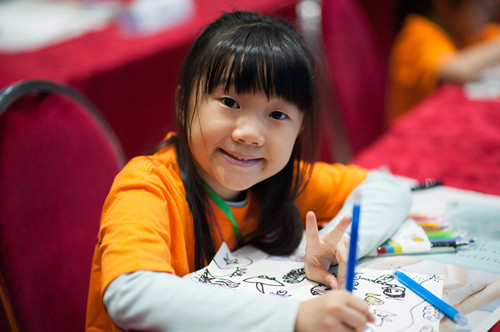
-
NEXT:
A Glance of Painting from the Perspective of Thinking Science On Feb 15, 2019 >
LATEST

- First Online Shenmo Training for Ru On Mar 29, 2021
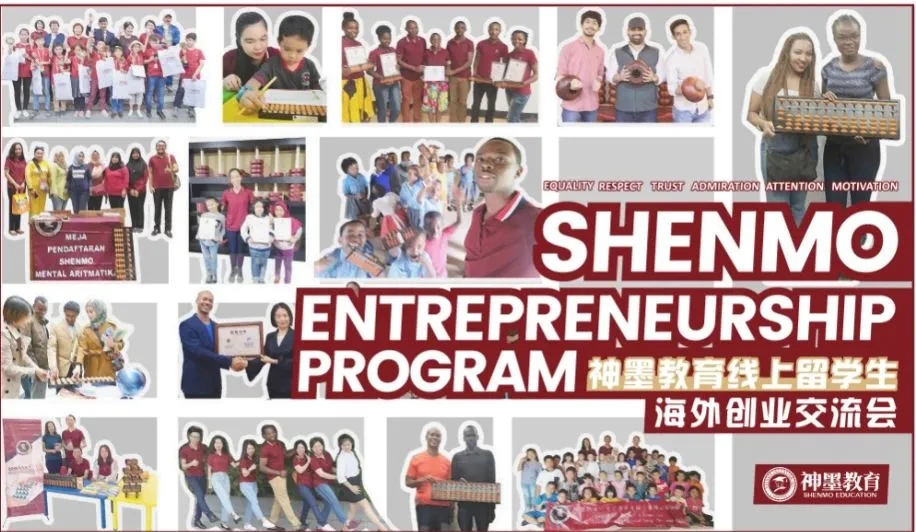
- Online Shenmo Entrepreneurship Exchange Meeting On Mar 29, 2021

- First Shenmo Online Abacus Mental M On Feb 03, 2021
EVENTS
Combination of Traditional Culture and Mo On Jun 02, 2020
Shenmo News:Shenmo Nigeria Abacus Mental On Oct 23, 2019
Shenmo News:The delegation of the 1st On Oct 21, 2019



